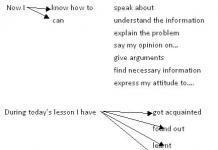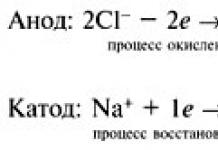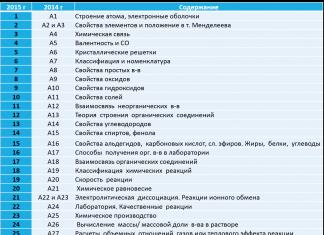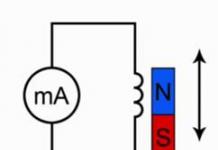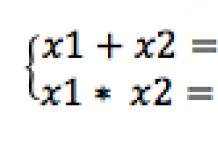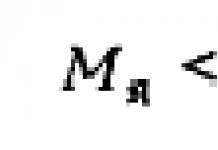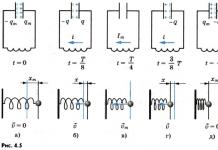Distance higher education is a teaching method in which the teacher and student are at a distance from each other. They are deprived of the opportunity to see each other in person, but they can communicate and see each other via the Internet. Some higher educational institutions offer applicants to acquire the necessary knowledge in this way, and people who want to study are happy to use this opportunity.
The advantages of distance higher education are obvious:
- you can live in one city / country and study in another
- you don't need to waste time on the road
- you choose a convenient time for you to study
Universities for distance higher education
Almost every state university that offers distance education on the basis of higher education is provided with all the necessary material and technical base for this.
In 2012, the Russian Federation passed the Law No. 273-FZ "Law on Education in the Russian Federation", which legalized and streamlined distance higher education. In the field of education in Russia, this was a breakthrough, although this type of education has been practiced in the world for a long time.
- In 1969 The Open University (Open University of Great Britain) began to conduct distance learning using two-way radio.
Today, universities have the opportunity to conduct online seminars and take exams without a personal meeting with students. Therefore, educational institutions can offer a wide range of specialties that can be studied remotely.
Of course, you cannot get a profession that requires certain practical skills. You cannot study remotely to become a doctor or technologist, but you can become a lawyer, economist, journalist, manager, get a diploma in psychology, logistics and ecology ... Some of the most popular areas of distance education:
- management;
- economy;
- jurisprudence;
- marketing;
- finance and credit;
- business Informatics;
- digital design;
- state and municipal administration;
- automated information processing and control systems;
- software for computer technology and automated systems.
No matter what city you are in, you can study at any university in the country and abroad. You can find a complete list of universities for distance higher education on the website of the Unified Center for Higher Distance Education - ecvdo.ru or EduNetwork.ru.
How much does distance higher education cost?
Distance higher education is cheaper than full-time education both for the university itself and for the students. The university does not pay for premises and utilities, students do not pay for travel, notebooks and other attributes.
The exact cost of education depends on the university and on the level of qualifications that you plan to obtain. The approximate cost of studying for a bachelor's degree varies from 30 to 60 thousand rubles per semester.
For example, at the UNIK institute a semester (half a year) costs 48,000 rubles, training lasts 3.5-5 years, depending on whether it is your first or second education.
Cost of distance education abroad ( specifically in European educational institutions) depends on the curriculum. The more items you choose, the more you pay. The load and cost consists of ECTS- modular credit system. The annual workload is 60 ECTS. For a bachelor's degree, you need to gain 180-240 ECTS, that is, 3-4 years of study, and for a master's 300 ECTS. In different universities, one ECTS costs differently, from 30 to 100 euros.
Another criterion is the popularity of the university.
Elite educational institutions tend to overcharge their prices. For example, at the prestigious University of Great Britain, Open University, the cost of ECTS is 42 euros, that is, you will need to pay per year 2500-3500 euros depending on the specialization.
In spanish Universidad a Distancia de Madrid the cost of ECTS is 73 euros, which means that for the year you will need to pay approximately 4380 euros.
The most expensive countries for study are America, England, Germany, France and Canada. But the level of education there is significantly higher than the level of other countries. Many foreign universities offer students to reduce their tuition costs in case of high academic performance and personal achievements - this way they motivate students to study better.
Video about Distance Higher Education and Tuition Fees
How is the training going?
- If you want to study remotely, you must have high-speed internet and a webcam.
On the website of your university, you will have your own personal account, where you can see the class schedule, your homework assignments, contacts of teachers, and you can download past lecture notes. For each lesson, you will be sent a link to an online conference, which can be held through the service Cisco WebEx or Adobe... If you have not attended the lecture, you can watch it at a convenient time in the recording. The only difference is that during the lecture you can immediately ask the teacher questions in a group chat.
Distance learning lasts the same as usual. If you get a second degree, the time is significantly reduced (down to 1-3 years). After each session, you go on vacation, but some universities give you the opportunity to skip this time and proceed to the next course.
How to enter a university for distance higher education
Before starting your studies, you must go through the admission procedure. Please be aware that some institutions accept students all year round, and some at certain times, once a year. Detailed information can be found on the website of your chosen university. But there are several rules that are common to all universities and institutes. So, how to enroll in a university for distance learning?
First, you need to submit a certain package of documents to the admissions office. After registering on the university website, you can apply for admission. After that, the manager will contact you and provide you with a list of required documents and the address where they need to be sent.
Required documents:
- A copy of the first page of the passport, a copy of the page indicating registration (certified copy by a notary);
- 4 photos in 3x4 format;
- The original of the certificate or a notarized copy of the document on previous education: a diploma of secondary vocational education or a diploma of higher education with attachments;
- certificate of the results of the unified state examination (USE);
- a statement with your signature.
You can download all application forms and questionnaires on the official website of the university. High school graduates may need to pass an entrance test, and those wishing to get a second degree - an interview. After enrolling in students, you will receive an e-mail, which will include a contract for training and a receipt for payment of the first semester. You sign the contract, pay for the semester and send the documents to the university. The admissions committee draws up an order for enrollment, and you get access to classes.
Distance education of the UNIK Institute
Here we can talk about receiving distance education using the example of a real student who shared his experience with us.
As we already said, the obvious plus of the DO is that you can live not only in another city, but also in the country. Gleb lives in Moldova, but is studying to become a designer (digital design) at the Moscow UNIK institute remotely. All documents for admission were sent by regular mail to the Moscow address of the university.
 Eugene studies the basics of design, academic drawing, almost all programs of the Adobe family. Gleb told us about the most important advantages for him -
Eugene studies the basics of design, academic drawing, almost all programs of the Adobe family. Gleb told us about the most important advantages for him -
“Among the teachers there are only active professionals, that is, designers, directors of firms and studios, those who earn money not only by teaching, but also by design. The teachers are young from 25 to 40 years old, active and lively people who tell only relevant information, what you need to know today. "
The institute's training programs cover the full range of knowledge that a future specialist needs. Distance learning is equivalent to full-time education at regular universities. The Institute offers education in the following demanded specialties:
- Journalism... During the course, you communicate with experienced representatives of the profession, after graduation, each student is provided with assistance in finding a job. The course will teach you how to inspire confidence in people and correctly analyze information and events. The term of study is from 4.5 to 3.5 years. The cost is 40,000 rubles for six months.
- Psychology... Serious but interesting program. The best teachers, lectures, seminars and master classes with the participation of renowned psychologists. At this faculty, you will receive the necessary theoretical knowledge and practical skills. The term of study is from 3.5 to 5 years. The cost is 29,500 rubles for six months.
- Design... Faculty for creative people, future graphic designers and interior designers. Developing a portfolio, training practical skills. The term of study is from 4.5 to 5 years. The cost is 48,000 rubles for six months.
- Foreign languages... The training is carried out in two profiles: translation and a foreign language in the business sphere. Faculty specialists are in demand in the labor market. The term of study is from 3.5 to 4.5 years. The cost is 48,000 rubles for six months.
Graduates of the institute work in various fields - from advertising agencies and the media to the Ministry of Culture of the Russian Federation. After training, you will receive a state diploma. To enter the institute, it is enough to leave an application on the official website. The admissions experts will call you and send you a detailed training plan. The staff of the institute will help prepare the necessary documents, accept the introductory assignment and enroll you in the course.
Distance education abroad
 If you have chosen to study abroad, first of all, prepare the necessary documents. This is a certificate of complete secondary education, all the necessary applications, letters of recommendation. All documents provided will most likely have to be translated into a foreign language. When applying for a second higher education or master's degree, in addition to the standard package of documents, you must provide a diploma of higher education.
If you have chosen to study abroad, first of all, prepare the necessary documents. This is a certificate of complete secondary education, all the necessary applications, letters of recommendation. All documents provided will most likely have to be translated into a foreign language. When applying for a second higher education or master's degree, in addition to the standard package of documents, you must provide a diploma of higher education.
Upon admission to some English-speaking universities, you will have to take a language proficiency test, after which you will receive an international certificate TOEFL... If you want to enroll in a German university, you will need to pass TestDaF or DSH... Sometimes you have to take additional tests. For example, in order to become a student at a National University in the United States, you will need to take a test in arithmetic and psychology.
The principle of work of foreign universities is similar to the principle of work of Russian ones. You register on the website of the educational institution, where you study lectures, take tests, take part in seminars, communicate with fellow students, and submit completed work.
Distance higher education is an excellent opportunity to get a profession without attending lectures and seminars and without being distracted from work and other daily activities.
Distance education allows you to communicate with a student at a distance: provide him with the necessary literature, communicate with him and control his knowledge. All this makes the learning process easier, faster and more efficient.
If you find an error, please select a piece of text and press Ctrl + Enter.
I would like to comment on the situation as a teacher (from the other side of the barricades, so to speak). I talk a lot with my students and many tell why they entered and why. Often forced by parents and grandparents. Often a person does not know what to do after school, why not go to a university? Often girls believe that education is such a kind of dowry, it is more interesting to talk to an educated wife. Many go, because "nowhere without a tower." And only a small part comes to receive education with adequate expectations and with an understanding of the process.
In my opinion, in order to answer the question whether it is worth it or not, it is necessary to consider several trends and facts.
1. In general, all people do not need higher education. There are a huge number of jobs and specialties where a person needs a specialized secondary education or just a secondary (completed school). For example, to work as a waiter, receptionist, secretary, courier, barista, it is enough to finish school and undergo on-the-job training. If this kind of suits you (by the way, they pay for it, by the way, they often pay more than for the work of specialists with higher education), then higher education will simply be a loss of 4-6 years of time (for which you will earn money at work and maybe get a couple of promotions ). Many students want to get practical work skills and algorithms (do it once, do it twice, here's the result), they want a specific craft, on the income from which you can live. This is a good request, but it is essentially a request for secondary specialized education. And this is not necessarily about electricians, plumbers and car mechanics. There are also hairdressers, manicurists, system administrators, jewelers and many, many others. These are good, necessary and paid professions. You can make a career in them and see the result of your work. Again, if you like that, then a college degree will again be a waste of time and a loss of profits.
2. Unfortunately, the attitude of people towards higher and secondary specialized education is not the same. Higher education in our country is still perceived with respect and honor. And about the secondary vocational education is often spoken of with disdain (for example, "fu, some kind of birdie", "this is for stupid", "why couldn't I go to a poor university?). I think this is completely wrong. This phenomenon is rooted in Soviet times, when specialists with higher education worked in more comfortable conditions, received much higher salaries and moved up the career ladder. About 20% of people had a higher education, and getting a degree was a powerful claim for social success. The memory of those times is still alive in the minds of our parents and grandparents. The situation, however, has completely changed since the mid-1980s (30 years have passed, but the stereotypes have remained). The demand for specialists with higher education is not as great as the supply (thousands of university graduates are not in demand). And, conversely, the professions of a make-up artist, administrator or call-center operator are much more in demand, they pay more for them and a higher education is essentially not needed there. Why waste 4-6 years?
3. Higher education now performs the functions that used to be performed by secondary education. Previously, the school did not hesitate to leave for the second year children who did not master the school curriculum well enough. The "one" rating was in use and the "two" had to be earned. No higher requirements were imposed, just the requirements were met more consistently and clearly. By the end of school, a person had not only a basic set of knowledge, but also a number of social skills sufficient to start an adult life. Now a school graduate is rarely ready for something. They give a certificate to everyone, repeaters are pulled up to grade 11 (even if they don't really know the 7th grade). But in the end it is necessary to send these people somewhere, so that they still "mature", gain communication skills, understand how, what and where. And now they are sent for another 4 years to the university, to learn the mind to the mind. This is not about a full-fledged higher education, this is about socialization and entering the culture. + Of course, now there is objectively more information and a more complex social structure, people grow up later than before (a global trend).
4. The quality of higher education leaves much to be desired (this applies to both conventional and top universities). There are many reasons for this. This is also a massive exodus of teachers in the 90s. And insufficient funding, insufficiently high salaries. And excessive bureaucracy, endless checks. And as I wrote above, the level of training of applicants is not always sufficient (and often it is not about knowledge, but about the ability to plan your time, communicate politely with teachers, independently complete tasks without super-detailed instructions, the ability to motivate yourself, etc. ).
5. Ultimately, higher education for many is a way to get some kind of magic crust. Its magic lies in the fact that parents and relatives will leave him alone. The magic is that the employer will not show off (and the employer requires a higher education both where it is needed and where it is not needed).
Is it worth it or not?
If you just want to quietly earn money, the content of your work activity itself is not so important for you, your relatives put pressure on you, and you want to “be no worse than everyone else,” then it IS NOT WORTH. You will lose several years of your life, not seeing the meaning in your actions. Get less professional experience and money that you could get if you immediately went to work.
If it is important for you to do a specific job or field of activity that requires in-depth training. If you want to engage in teaching and / or scientific activities. If you want to gain deep knowledge not only about how to do a specific job, but also about how society and the world work. If you are determined to self-development in the intellectual sphere. Then WORTH.
This article tells in detail about free higher education in Russia, and everything you need to know about it. Nowadays, getting higher education is very important. To get a good job, graduating from one school and a secondary vocational institution is not enough. Therefore, each person strives to find such an institution in which it is possible to obtain a higher education at a very low price or free of charge in the specialty in which he would like to work in the future. The issue of free higher education in Russia is very relevant, because in fact it is almost impossible to find one.
What does higher education give
A person's higher education gives him the opportunity to find and get a high-paying job. Its owner can quickly move up the career ladder. And the skills acquired during training will always find their application in real life.
A person who has received a higher education is more likely to get a job where he will be comfortable, when the owners of secondary specialized or vocational education cannot boast of this. Often, employers select candidates who have the highest degree.
But what about those who at one time neglected their right to receive free higher education? This issue is relevant and can be viewed from different angles.
How to get higher education for free
In accordance with federal law number 273, each person has the right to receive higher education once free of charge on a competitive basis. This means that you can enter the budget only once in your life. To do this, you must go through the appropriate procedure.
- Pass all the unified state exams that are necessary for admission to the university chosen by the future applicant. As a rule, for admission you need to pass only three compulsory USE, which include: mathematics, Russian and a special subject corresponding to the profile of the applicant;
- Write a statement of the appropriate sample. Currently, application submission may take no more than five minutes. This is due to the fact that many universities have their own sites where it is possible to apply for admission online;
- Providing all necessary information. It includes all data on passing the Unified State Exam, a diploma for obtaining secondary vocational education, a school certificate, as well as a passport of a citizen of the Russian Federation, a birth certificate, if there is no first, and so on;
- Getting results. After the applicant has passed the exams and provided all the necessary documents, he must wait until the commission decides on his admission to budget education. The decision is made on the basis of examinations. Whoever scored the highest number of points automatically receives a budget place, then the commission considers the possibility of providing places for weaker applicants, based on their documents, diploma, certificate. It should be noted that orphans, inmates of children's homes, under guardianship minors are accepted for budget education out of competition. It is enough for them to score the minimum score, which will correspond to the passing of the exam. Currently, this is not required, since in every school, starting from the ninth grade, students take this exam, as indicated in their certificate;
- Admission and start of training. Now the most important thing is not to make a mistake, constantly be present at lectures, pass tests on time and study diligently. Only then can you get a good diploma, and, therefore, a prestigious job.
Studying at a budgetary place makes it possible to get a higher education free of charge, as well as the state guarantees to provide the student with a scholarship, additional payments for good studies for the entire period of study.
Alternative option for obtaining higher education
Currently, there are many opportunities for obtaining higher education, and not just admission to budgetary education.
Full-time education on a paid basis. Here, the student study in the same way as on a budgetary basis, only pays a certain amount of money for a year of study. It should be noted that a person received his first education for a fee, he loses his right to receive free higher education.
Extramural studies. With this form, the student pays a certain amount of money for the session, which is equal to half a year. He does not need to be present at the lectures. He comes for about a week and takes all the necessary tests and exams. If a person could not master any material on his own, he can, for an additional fee, ask a university teacher who will explain the basics of the subject.
Employer's help. For example, a person works in a certain position, the employer wants to raise him, but for this it is necessary to obtain an appropriate education. In this case, he has the right to send the employee to any university. Moreover, the cost of training must be borne by him. If the employee himself has expressed a desire to acquire a higher education, then the employer may not pay for his training, but he can reimburse some of the losses if this education makes sense for the employee's further work at this enterprise.
In this article, you learned about free higher education in Russia. If you have any questions or problems that require the participation of lawyers, then you can ask for help from the specialists of the information and legal portal "Sherlock". Just leave a request on our website and our lawyers will call you back.
Editor: Igor Reshetov




